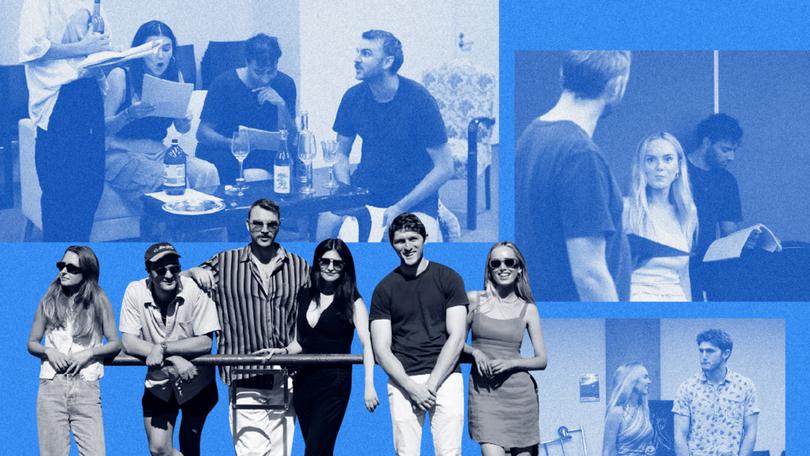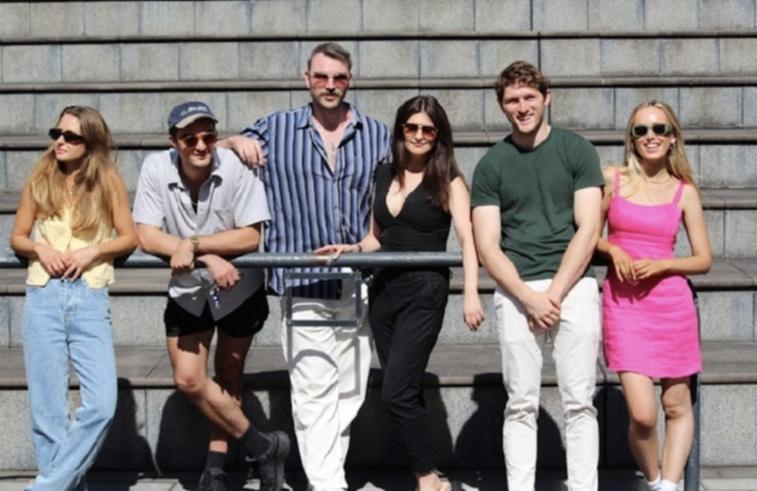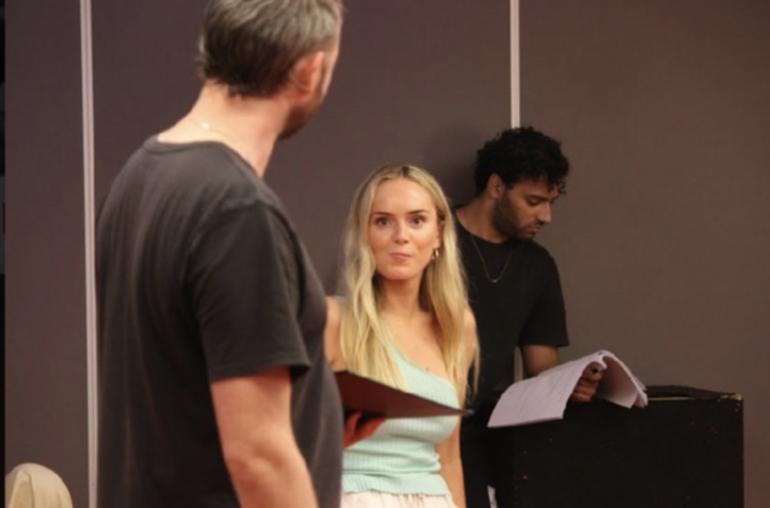The Best of Times: Playwright Josephine Gazard’s ‘clash of echo chambers’
Josephine Gazard’s new play wants everyone to step outside their own entrenched views to challenge themselves to disagree differently.

Like many people, playwright Josephine Gazard has noticed the increasing polarisation in Australia. We exist in the echo chambers of our own social groups, both in person and online.
You can walk around Sydney’s progressive inner west, browse independent bookshops, farmers markets and delis and believe that you’re among like-minded folks. You laugh at similar jokes and shake your head at some politician’s silly comments. Online, tech companies only reinforce the same, their algorithms serving up posts that elicit a “like” and a feeling of, “Well, obviously”.
Sign up to The Nightly's newsletters.
Get the first look at the digital newspaper, curated daily stories and breaking headlines delivered to your inbox.
By continuing you agree to our Terms and Privacy Policy.But then something like The Voice referendum happens and the overwhelming “no” vote – 61 per cent – reveals the deep chasm of disagreement. The bubble bursts. Recriminations and judgement are thrown around as we stand firm on our original positions.
“In the inner west, we were so hopeful, and everyone had signs out the front of their houses. Then in my hometown four hours away, it wasn’t even on their radar,” Gazard recalls. “My dad still lives there and it’s a very conservative environment.”
In conversations with her father, Liberal Party heavyweight David Gazard, it seemed as if The Voice had no chance of passing, which was ultimately reflected in the vote. But you wouldn’t have known it in Sydney’s inner west.

“I wanted to give my friends from the inner west the experience of sitting with someone like my dad,” she says. “He hunts with a bow and watches Sky News. What does that conversation look like and how do these viewpoints interact with each other?
“Do they ever agree? What do they disagree on?”
Tonight, Gazard’s play The Best of Times opens at the Old Fitz theatre in Sydney’s Woolloomooloo. It’s centred on a group of friends at a 10-year high school reunion who get into thorny conversations about The Voice, freedom of speech, gender and the role of universities. So, you know, fluffy stuff.
The characters all sit in different spots on the political spectrum and Gazard explores the pain points of where they clash and why.
“No one ever thinks they’re doing the wrong thing,” she explains. “We need to understand the views that are polarising the country. If we’re not engaging with it, then nothing is ever going to change. We’re all going to be in our own echo chambers and we’ve lost this ability to talk to each other and meet at a place of understanding.
“There’s so much black and white and we can’t have a discussion anymore.”
In writing the verbal skirmishes between her characters, she mined conversations with her father, and research including going down a Ben Shapiro rabbit hole on YouTube.
Gazard’s dad might be embedded in political circles and has advised prime ministers including John Howard, Tony Abbott and Scott Morrison, and she grew up overhearing phone calls to powerful decision makers, but their relationship is an extreme example of a familiar dynamic.
Every member of The Best of Times’ audience would know someone – or many someones – with diametrically opposed opinions, on either side of the political spectrum. It could be a family member, an in-law, or a friend you feel less inclined to see after finding out their stance on Johnny Depp.
Increasingly, those people in our lives become the ones we tiptoe around, watching what we say. With them, politics and religion aren’t just no-go zones at the dinner table, it’s no-go at all times. If you identify as right-wing, you would never read The Guardian, if you consider yourself on the left, you’d shun Sky News.
You close yourself off to anything you think will be unpleasant. In the name of self-care, our worlds become smaller.

Gazard doesn’t dodge the hard parts. Her previous play, That’s What She Said, was drawn from her experience of being sexually assaulted at university and the challenges of seeking justice in a flawed institution.
With The Best of Times, Gazard is again choosing to confront difficult moments. She wants to have these debates so we can connect and recognise each other not as opposing forces but as humans.
Gazard describes The Best of Times, directed by Megan Sampson, as a “big clashing of echo chambers, coming together all at once”. She may have her stance on things but she hopes she wrote from a place of neutrality – “It’s really tricky and I hope I’ve done it, that’s something for people to decide”.
“The piece of theatre I wanted to make was never about changing anyone’s mind or casting my own political beliefs, telling people what to think. I want to leave it with the audience to have discussions about who wins and who they agree with and why.
“It’s more about how does debate change the air when you’re sitting with a group of friends, what happens when someone says something that you don’t agree with?”
In writing for characters who held positions she might not personally agree with, Gazard argues it’s not about platforming those views but representing them with authenticity, and giving the audience a chance to decide what they want to do with that access.
“It’s there to provoke a response and to provoke a conversation.
“I hope it will be something where people aren’t necessarily like, ‘Wow, they were all absolute f**kwits and they were all stupid’. I hope it’s more like, ‘I never thought of it that way’ or ‘I thought that moment really captured that person’s life experience and why they’ve come to think like this’.
“We need to identify the fact that we might be in an echo chamber, and need to learn to disagree better and have these uncomfortable conversations in a civil way. Being so polarised is not going to get anyone anywhere.”
The Best of Times is playing at The Old Fitz until March 30

